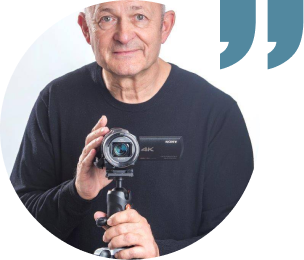What immediately comes to mind when you hear this quote?
Personally, a four-year old child seems very young to me; a young person of 12 to 14 years of age seems much more realistic as a challenge to explain something comprehensible. I once had to explain the Belgian state reform to my 12-year old daughter... not easy… but I managed it!
In communication, you always have to make the difference between output and intake. The output is what you say. And the intake is what is taken away. Of course, it is the intake that counts. It is like a shop window: sometimes you have a lot of choice and if there is too much choice, the customer will not buy...
I also have the following tips for clear communication:
- Avoid the use of jargon. It seems obvious but still a pitfall. You may come across as a clever communicator, but people don't pick up on it. Many politicians and civil servants wrongly assume that citizens know what "population" or "attainment levels" mean, for example.
- Assume that your audience knows nothing about your subject, but don't treat them like idiots.
- Realise that everyone is busy with something else while you are communicating. For example, a radio interview. The average listener is in his car or preparing his meal at the same time.
You have trained more than 3.200 people in business, politics and diplomacy. Probably some of them are real gems in communication. What are the secrets to getting a subject across as comprehensively as possible?
Preparation, preparation, preparation! If I coach someone and they say after an hour: "Thanks, I'll just practice before my speech..." then you know it's not going to work... Some people come across very spontaneous and natural in the media, but I know from experience that every word has been practised and tested beforehand. So preparation is the key to all success, but sometimes you can go too far. In the US, everything is so sophisticated and professional that, for the average European, the message is no longer credible. In my experience the top communicators prepare the most, and the least gifted are also the least prepared…
Besides preparation, as a good communicator you have to tell a story, bring perspective and show empathy.
In your media training and your book " Spreken is goud, maar vooral wat je zegt is belangrijk " you emphasise the content. Why the emphasis on content?
Albert Mehrabian published research on communication in 1967 with an iconic pie chart, in which he claimed that 55% of a message is conveyed by body language, 38% by the intonation of the voice and only 7% by the content. We now know very well that that study was wrongly interpretated ... content does matter and if you prepare the content well, then the non-verbal and intonation will follow naturally.
I also attach great importance to the 80% rule: people often only tell 80% of what they mean and often limit themselves to their vision rather than what their message can mean to others. I coached a medical professor who had done important cardiology research... only after long insistence did he get to the message that was really relevant to his audience: with his research, he could reduce the risk of rejection of pacemakers by 30%.
Who or what inspires you?
As a communicator, I think former President Barack Obama is top of the bill. Obama has an incredible sense of timing. He takes his time to explain things comprehensively. He is also incredibly empathetic in his communication and has a masterful sense of humour.
Which quote would you like to see analysed by Dr Quote in the future?
I like the expression “Travel light”!

